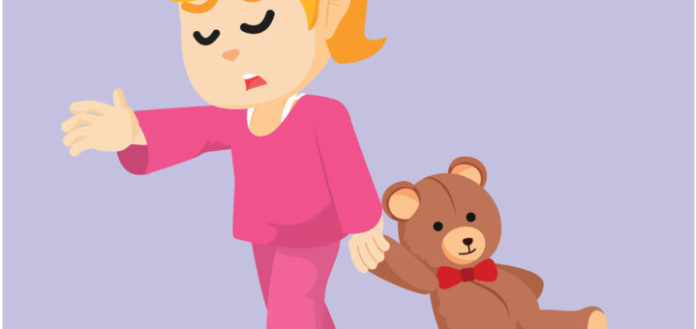
What is sleepwalking?
Sleepwalking occurs when a person actively moves about during deep sleep. Sleepwalkers are often difficult to rouse and have no recollection of their exploits.
Dr Scott Burgess from QCLASS (Queensland Children’s Lung and Sleep Specialists) advises that sleepwalking is part of a group of conditions known as the “parainsomnias” which also includes sleep talking, nightmares and night terrors.
Who is affected by sleepwalking?
Sleepwalking is more common in children (up to 17 per cent) than adults (up to 4 per cent). It is inherited in an autosomal dominant fashion, which means if one parent sleepwalks it’s likely some of their children will sleepwalk, sleep talk or suffer night terrors. The peak age for sleepwalking is in pre-teens (8-12years).
Why does sleepwalking occur?
Normally while asleep, there are parts of your brain that inhibit you from acting out your dreams. We don’t know why these mechanisms don’t always work in some people. We do know sleepwalking is not related to any serious medical problems.
What is the treatment for sleepwalking?
No treatment is required for sleepwalking and it’s considered harmless. The main concern with sleepwalking is keeping the sleepwalker safe by preventing them from acting out any dangerous activities (such as driving a car). For this reasons various devices are available such as alarms for doors.
It’s thought that sleepwalkers still experience refreshing sleep despite being active at night.
Should I wake up someone who is sleepwalking?
It is not harmful to wake a sleepwalker. However, sleepwalking tends to occur more frequently when sleep deprived. If possible gently guide a sleepwalker to bed as less fragmented sleep may reduce their chance of a repeat episode the next night.
